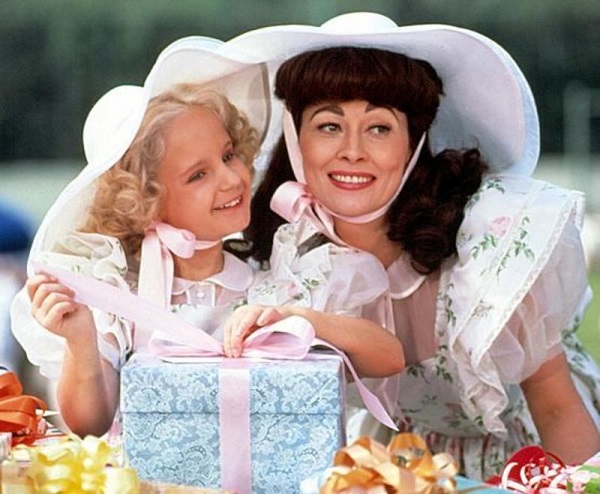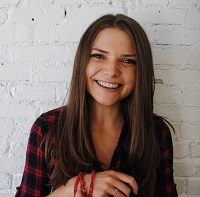
“For each thing manifests its mother, which thus gives the essence and the will to the form.” ~ The Signature of All Things by Jacob Boehme
~
I host transformational women’s retreats called The Shift, where women have an opportunity to identify and heal what has been holding them back in life.
One of the first things we have participants do at the retreats is write an inventory of every issue that is causing them stress, grief, anxiety, insecurity, sadness, or frustration.
Then—cut to some point later in the weekend when we’ve all opened up, cried our eyes out, and shared our hearts with one another—the women do some deep work around identifying whom they are unconsciously blaming for these issues. They each discover that the root of their issues is that they have given responsibility for their happiness, peace, and fulfillment to others, and they are using their suffering to unconsciously punish these people.
We go around the circle afterward to share whom we’ve discovered we’re blaming and resenting for our unhappiness, and more times than not, the circle echoes back the same two words:
“My mom.”
This is the mother wound showing itself, and we clearly are not dealing effectively with it as a society.
The mother wound is the pain, passed down through generations, of being a woman in a patriarchal culture. It includes dysfunctional coping mechanisms used to process that pain, and it shows its face in many forms, like eating disorders, alcoholism, body shame, and anger management issues. The mother wound also includes the pain of insecurity, comparison, and not feeling good enough.
To me, the mother wound is the mother of all wounds.
The mother wound does not only exist in women whose mothers mistreated them. It exists within us all because all of our mothers have been wounded. No unwounded mother exists on the planet and no human on the planet exists without a mother.
We carry that wound within ourselves because we carry the archetypal mother within ourselves. And, no matter how we feel about our own mother, we carry her within us too.
Dr. Oscar Serrallach, the person to bring the concept of the mother wound into collective consciousness, says that the mother wound is “a matrilineal wound—a burden that manifests in mothers, and is passed on from generation to generation. It’s the pain and grief that grows in a woman as she tries to explore and understand her power and potential in a society that doesn’t make room for it, forcing her to internalize the dysfunctional coping mechanisms learned by previous generations of women. The mother wound reflects the challenges a woman faces as she goes through transformations in her life in a society where the patriarchy has denied us ongoing matrilineal knowledge and structures.”
The four fundamental functions of mothering are: to nurture, to protect, to empower, and to initiate. None of our mothers did all of these perfectly and therefore, all of us were imperfectly mothered.
Blaming our mothers for the way we are is equivalent to blaming Earth for a disease we received from environmental toxins. It’s not our mom’s fault; it’s not Earth’s fault.
I’m not saying that our mothers didn’t cause certain negative reactions in how we interact with the world, but I am saying that she herself is not the original cause of the harm done to us. She carries in her DNA the wounds of rape, miscarriages, abortions, sexual slavery, physical abuse, the denial of basic needs, and the right to speak her truth.
We marinated for nine months in the traumas of her womb, just like she marinated in the traumas of her mother’s womb. We were created there—in the seat of violence.
Hurt people hurt people, and that hurt was passed down to her. Now it has been passed down to us. And now we are responsible for healing it and transmuting it.
So how can we heal this ancestral hurt? And what is there to say to the women who created us?
The women who are responsible for so much of what is right and wrong with us? The women whose hearts beat ours alive?
There are only four things to say:
“I love you. I’m sorry. Please forgive me. Thank you.”
Ancient Polynesians called this the Ho’oponopono mantra, which means “to set right.”
The mantra is about taking full responsibility—this does not mean taking the blame or assuming fault. It means looking from the perspective that you are responsible for the hurt in yourself, others, and in the collective. And while you may not be responsible for everything (how could a thing like that be objectively true?), it is the only perspective that will give you access to your healing power.
When we do not take this perspective, we become victims of the particular way that the mother wound was inflicted upon us and we feel resentful and powerless. When we do take this perspective, we accept that the hurt that has been inflicted upon us is a call for help—a call for us to be engaged in the process of healing this collective trauma.
The philosophy of the “I love you, I’m sorry, please forgive me, thank you” mantra has its backing in many different traditions: “The Eastern concept of karma is also about how our thoughts and actions influence others, not merely our own future. The Western Jungian psychological concept of collective unconscious is about how all of us on this planet influence one another. Both resonate with Eastern concepts of the collective consciousness and Quantum Physics concepts of how observer influences what is observed. In simple terms, what we think and feel not only affects what we do, but also what happens to other people who may not be connected to us.”
The mother wound, and pain in general, is like an orphan that is waiting for someone to take full responsibility for it. When we give up being resentful of the pain that we carry, and are instead willing to witness our pain and the pain of others with absolute love and compassion, and to take absolute responsibility for it, then that pain is free.
So what I ask of you is to use this Mother’s Day as an opportunity to meditate on the “I love you, I’m sorry, please forgive me, thank you” mantra, to release all resentment, grudges, victim stories, and lack of forgiveness toward your own mother, and if she is still alive, to call her and say these things.
I promise there is something—probably many things—for you to apologize for, request forgiveness for, give thanks for, admit, accept, or acknowledge to your mother. Use Mother’s Day to accept responsibility for her pain and stop blaming her for yours.
If your mother is not alive, speak these things aloud anyway. There’s nothing more vulnerable than speaking your truth, whether she is physically here to hear it or not.
What is in one is in the whole. As we heal our own feminine energy, we also impact and help to heal pain in the global feminine community, including oppression, poverty, female mutilation, sexual slavery, and physical abuse. We can even begin to help heal our Mother Earth—and we all owe her a lot of “I love you, please forgive me, I’m sorry, thank you’s” too.
We cannot fully heal until we fully forgive our mothers—because they are us. Whatever forgiveness we withhold from the women who have been exposed to the very same world we have, we withhold from ourselves.
May Mother’s Day become the day we all take responsibility for healing the mother wound.
~
Relephant:
Is the Mother-Wound Ruining Our Romantic Relationships?
Beyoncé’s Curse: How the Mother Wound Affects our Relationships.
~
Author: Brandilyn Tebo
Image: YouTube
Editor: Nicole Cameron
Copy Editor: Catherine Monkman






Read 12 comments and reply